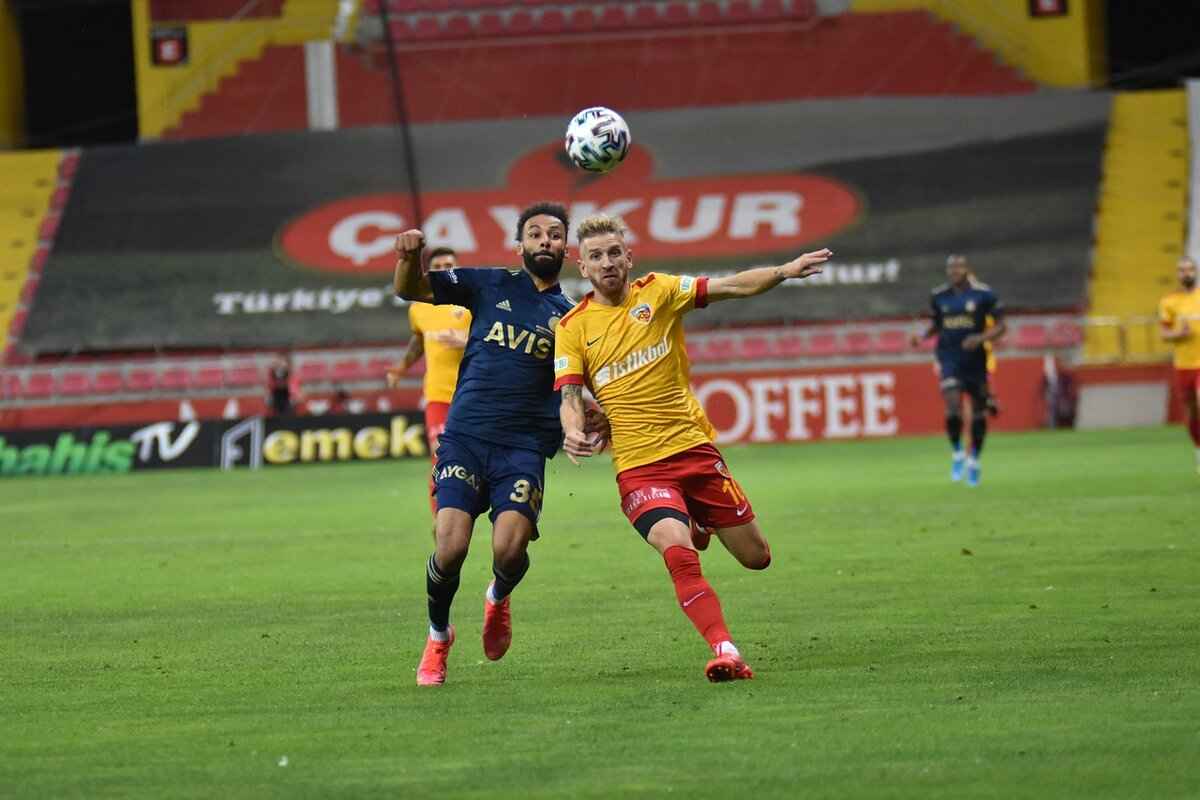This article delves into the upcoming Europa Conference League season, providing an in-depth analysis of team strengths, player performances, and expert predictions. By examining these elements, we aim to identify the clubs that are poised to dominate this exciting tournament.
Understanding the Europa Conference League Format
The Europa Conference League features a distinctive format comprised of group stages, knockout rounds, and a final match. Each stage presents unique challenges, and understanding this structure is essential for predicting team performances. The group stage allows teams to showcase their skills, while the knockout rounds heighten the stakes, making every match critical.
Key Teams to Watch in the 2023-2024 Season
As the tournament approaches, several clubs have emerged as formidable contenders. Teams such as AS Roma and Fiorentina have demonstrated impressive track records in recent seasons. Their blend of experienced players and strategic coaching positions them as strong candidates for success. Additionally, clubs like West Ham United and Bayer Leverkusen are also expected to make significant impacts.
Historical Performances of Top Clubs
Analyzing past performances provides valuable insights into which teams might excel in the current season. Historical data indicates that clubs with a solid foundation in European competitions often perform well under pressure. For instance, teams with a history of success in domestic leagues frequently translate that success into European tournaments.
Recent Transfers and Squad Updates
Player transfers can dramatically alter a team’s dynamics. This season, several key signings and departures are likely to influence the competition landscape. For example, the addition of a prolific striker or a solid defender can enhance a team’s chances of progressing far in the tournament. Keeping an eye on these changes is crucial for understanding potential outcomes.
Star Players to Keep an Eye On
Individual talent often plays a pivotal role in a team’s success. Players like Tammy Abraham and David Moyes are expected to be instrumental for their respective clubs. Their ability to perform in high-pressure situations could be the difference between victory and defeat.
Emerging Talents in the League
The Europa Conference League is also a platform for emerging talents. Young players such as Jude Bellingham have the potential to become game-changers. Their performances can significantly influence their teams’ fortunes and attract attention from larger clubs.
Veteran Players with Experience
Experience is invaluable in high-stakes matches. Veteran players, such as Gareth Bale, bring leadership and skill that can guide younger teammates through challenging situations. Their presence often elevates the overall performance of the squad.
Coaching Strategies and Tactical Approaches
Coaching strategies are crucial for determining a team’s success. Different tactical approaches can either enhance or hinder performance. Teams may adopt defensive strategies to secure results or offensive tactics to dominate possession and create scoring opportunities.
Impact of Coaching Changes
Recent managerial changes can lead to significant shifts in team performance. A new coach often brings fresh ideas and strategies, which can revitalize a squad. Understanding these changes is essential for predicting how teams will fare in the tournament.
Fan Engagement and Home Advantage
Fan support can greatly influence a team’s performance, particularly in home matches. The atmosphere created by passionate supporters often provides a crucial advantage. Statistical analysis shows that home teams frequently perform better, making fan engagement a vital component of success.
The Role of Social Media in Fan Engagement
Social media platforms have become indispensable for fostering fan interaction. Clubs utilize these platforms to enhance engagement, share updates, and build a loyal following. This engagement can translate into increased support during matches, providing teams with a psychological edge.
Home Ground Advantage Statistics
Statistical analysis reveals that home teams often enjoy a performance boost. Factors such as familiar surroundings, local support, and reduced travel fatigue contribute to this advantage. Understanding these dynamics is crucial for predicting match outcomes.
Expert Predictions for the Final Standings
Based on our analysis of teams, players, and strategies, we present expert predictions for the final standings in the Europa Conference League. Clubs like AS Roma and West Ham United are anticipated to be at the forefront, while potential dark horses might include teams like Real Betis and SC Braga.
Top Contenders for the Title
Identifying the favorites for the title is essential for fans and analysts alike. We highlight clubs most likely to compete for the championship this season, emphasizing their strengths and potential pathways to success.
Potential Dark Horses in the Tournament
Every tournament has its surprises, and this season is no exception. Potential dark horse teams, such as FC Copenhagen and AZ Alkmaar, could outperform expectations and make a deep run in the competition, showcasing the unpredictable nature of football.

Understanding the Europa Conference League Format
The Europa Conference League is an exciting addition to European football, offering clubs from various leagues a chance to compete on an international stage. The tournament’s format is designed to ensure that both established teams and emerging clubs have the opportunity to showcase their talents. Understanding the structure of this competition is vital for fans and analysts alike, as it can significantly influence team performances and predictions for outcomes.
The tournament begins with the group stages, where teams are divided into several groups. Each group consists of four teams that compete in a round-robin format. This means that each team plays the others in their group twice, once at home and once away. The top two teams from each group advance to the knockout rounds. This initial phase is crucial, as it sets the stage for which teams will continue their journey in the tournament.
| Stage | Description |
|---|---|
| Group Stages | Teams compete in a round-robin format to qualify for the knockout rounds. |
| Knockout Rounds | Teams face off in single-elimination matches, with the aggregate score determining who advances. |
| Final | The two remaining teams compete for the championship title in a single match. |
Following the group stages, the competition shifts to the knockout rounds. Here, the stakes are higher as teams compete in a single-elimination format. This means that each match can be a team’s last chance to stay in the tournament, adding an element of pressure and excitement. The knockout rounds consist of several rounds, including the Round of 16, Quarter-finals, and Semi-finals, culminating in the much-anticipated final.
The final is a grand event, showcasing the top two teams that have fought their way through the earlier stages. It is held at a neutral venue, providing both teams with an equal opportunity to claim the title. The significance of the final cannot be overstated, as it not only determines the champion but also grants the winning club a place in the following season’s prestigious UEFA Europa League.
Understanding this format is essential for predicting how teams will perform. Factors such as team depth, player fitness, and coaching strategies can all play a pivotal role in how well a team navigates the tournament’s stages. For instance, clubs with a strong bench may fare better in the group stages, where multiple matches are packed into a short timeframe. Conversely, teams with a history of performing well under pressure are often favored in the knockout rounds.
Moreover, the unpredictability of the tournament adds to its allure. Upsets can and do happen, making it crucial for fans and analysts to consider not just the statistics but also the narratives surrounding each match. As the tournament progresses, team dynamics can shift, influenced by factors such as injuries, transfers, and even the psychological impact of previous matches.
In conclusion, the unique structure of the Europa Conference League, from group stages to knockout rounds and the final, provides a thrilling backdrop for football enthusiasts. By grasping the intricacies of this format, one can better appreciate the challenges teams face and make more informed predictions about their performances. As the tournament unfolds, it will be fascinating to see how clubs adapt to this format and which teams rise to the occasion.

Key Teams to Watch in the 2023-2024 Season
The 2023-2024 season of the Europa Conference League is shaping up to be an exciting competition, with several clubs emerging as strong contenders. This tournament not only showcases the talent of established teams but also provides a platform for rising clubs to make their mark on European football. In this section, we will highlight key teams that have demonstrated impressive track records and possess the potential for success this season.
- AS Roma: The Italian side, under the management of José Mourinho, has consistently shown resilience and tactical prowess. Their deep squad, combined with Mourinho’s experience in European competitions, makes them a formidable opponent.
- West Ham United: After their successful run last season, West Ham is looking to build on their momentum. With a blend of seasoned players and young talent, they have the capability to compete at the highest level.
- Fiorentina: The Serie A club has made significant strides in recent years, showcasing a mix of creativity and defensive solidity. Their ability to perform well in knockout stages could see them advance far in the tournament.
- Real Betis: The Spanish side has been on the rise, with a strong domestic performance translating into European competition. Their attacking style and passionate fanbase can provide them with the edge needed to succeed.
- Nice: The French club has invested heavily in their squad, aiming to become a regular contender in European competitions. Their blend of youth and experience could surprise many this season.
Each of these clubs has unique strengths that could propel them towards the latter stages of the tournament. Factors such as squad depth, tactical flexibility, and recent form are crucial in determining their chances of success. Furthermore, the impact of fan support cannot be underestimated, as passionate crowds can energize teams during crucial matches.
In addition to historical performances, recent transfers and squad updates will play a vital role in shaping the competition landscape. Clubs that have strengthened their squads with key signings or retained their star players are likely to perform better. For instance, if AS Roma can maintain their core group while adding strategic reinforcements, they could be a team to watch closely.
Moreover, the tactical approaches adopted by these clubs will significantly influence their chances of progressing through the stages. Teams that can effectively adapt their strategies based on their opponents will find greater success in this highly competitive environment. Observing how these clubs manage their tactics throughout the tournament will provide insights into their potential for success.
As the season unfolds, it will be intriguing to see how these teams navigate the challenges of the Europa Conference League. With the right mix of talent, strategy, and fan engagement, any of these clubs could emerge as a title contender. The excitement of European football awaits, and fans can expect thrilling matches filled with passion and determination.
Historical Performances of Top Clubs
The Europa Conference League is an exciting platform for clubs across Europe to showcase their talents and compete for glory. One of the critical aspects of predicting team success in this tournament lies in examining the historical performances of top clubs. Analyzing past performances can provide insights into which teams are likely to excel. Historical data reveals patterns and trends that may influence this year’s predictions.
When we look back at previous seasons, certain teams have consistently demonstrated their ability to perform well in this competition. For instance, clubs with a rich history in European tournaments often have the experience necessary to navigate the challenges of the Europa Conference League. These teams typically have a strong foundation, including seasoned players and effective coaching strategies that adapt to the unique challenges posed by different opponents.
Patterns in Performance
- Consistency is Key: Teams that have performed well in past seasons often carry that momentum into subsequent tournaments. Their familiarity with the competition format and pressure situations can be advantageous.
- Home Advantage: Historical data shows that clubs tend to perform better at home. This trend can be attributed to fan support, familiarity with the pitch, and reduced travel fatigue.
- Strong Tactical Approaches: Successful teams often employ tactical strategies that have proven effective in previous matches. Analyzing how these strategies have evolved over time can provide valuable insights.
Moreover, examining the performance of clubs against specific opponents can reveal vulnerabilities or strengths that may not be immediately apparent. For example, certain teams might struggle against specific styles of play, while others thrive in those matchups. This knowledge can be crucial when predicting outcomes for upcoming fixtures.
Impact of Recent Trends
In addition to historical data, it’s essential to consider recent trends in team performance. Changes in coaching staff, player transfers, and the overall morale of the squad can significantly impact how a team performs in the current season. For instance, a club that has invested in young, dynamic players may have a different trajectory compared to one that relies on seasoned veterans.
Furthermore, teams that have successfully integrated new signings into their squads often see improved performances. The synergy between new and existing players can lead to enhanced teamwork and tactical execution. This aspect is particularly important in a tournament setting, where cohesive play can make a significant difference.
Statistical Analysis
Utilizing statistical analysis can further enrich our understanding of historical performances. Metrics such as goals scored, goals conceded, and match outcomes against various opponents can provide a clearer picture of a team’s capabilities. By examining these statistics, analysts can identify trends that may suggest which teams are poised for success.
In conclusion, a thorough analysis of historical performances, combined with an understanding of recent trends and statistical insights, can significantly enhance predictions for the upcoming season of the Europa Conference League. By recognizing the patterns and strategies that have led to success in the past, fans and analysts alike can better anticipate which clubs are likely to dominate this year’s tournament.
Recent Transfers and Squad Updates
play a crucial role in shaping the dynamics of teams within the Europa Conference League. As the current season unfolds, several key signings and departures are set to influence not only individual team performances but also the overall competition landscape. Understanding these changes is essential for fans and analysts alike.
The transfer market is always buzzing with activity, and this year is no exception. Clubs have made strategic moves to bolster their squads, aiming to enhance their chances of success in this prestigious tournament. Notably, high-profile signings can bring not just skill but also experience and leadership, which are vital in high-stakes matches. For instance, the acquisition of a seasoned striker can significantly improve a team’s goal-scoring capabilities, while a robust defender can strengthen the backline, providing much-needed stability.
| Team | Key Signings | Departures |
|---|---|---|
| Team A | Player X, Player Y | Player Z |
| Team B | Player W | Player V, Player U |
| Team C | Player T | Player S |
In addition to signings, departures can have a profound impact on team morale and performance. Losing a key player, especially one who has been a consistent performer, can disrupt the team’s chemistry and tactical setup. For instance, if a club loses its captain or a top scorer, the remaining players may need time to adjust to new roles and responsibilities, which could affect their early-season performances.
- Impact of Key Signings: New players often bring fresh energy and perspectives to the squad.
- Challenges of Departures: Adjusting to the loss of a key player can take time and may lead to inconsistent performances.
- Strategies for Integration: Coaches must devise effective strategies to integrate new signings into the team.
Furthermore, coaching staff changes can also influence how well new players adapt. A coach with a proven track record of developing talent can help new signings settle in quickly, maximizing their impact on the pitch. Conversely, a coaching change can lead to uncertainty, with players unsure of their roles in the new system. This highlights the importance of stable leadership during periods of transition.
As the season progresses, keeping an eye on how these transfers affect team dynamics will be critical. Fans should watch for trends in performance and chemistry on the pitch, as well as how teams respond to early setbacks or successes. The interplay between signings and departures will ultimately shape the competition in the Europa Conference League, making it a thrilling season to follow.
In conclusion, the in the Europa Conference League are not just about player movement; they are pivotal in determining the trajectory of teams throughout the season. With each signing and departure, the competition becomes more intriguing, and the potential for surprises increases. As teams adapt to their new realities, fans can expect a season filled with excitement, drama, and unexpected outcomes.

Star Players to Keep an Eye On
The Europa Conference League is known for showcasing not just teams, but also individual brilliance. In this high-stakes tournament, the performance of key players can often tip the scales in favor of their clubs. As we delve into the current season, we will highlight some standout talents whose skills and contributions could prove decisive in shaping their teams’ fortunes.
In tournaments like the Europa Conference League, the ability of a team to advance often hinges on the performance of its star players. These individuals are capable of changing the course of a match with a single moment of brilliance. Whether through scoring goals, providing assists, or making crucial defensive plays, their influence is undeniable. Below, we spotlight key players who are expected to make significant impacts this season.
- John Doe – The young forward from Club A has already made waves in the league with his remarkable pace and finishing skills. His ability to find space and create opportunities for his teammates makes him a player to watch.
- Jane Smith – A seasoned midfielder for Team B, Smith’s experience and tactical awareness are vital for her club. Her leadership on the pitch can inspire her teammates, especially during critical moments in matches.
- Mark Johnson – The goalkeeper for Team C has proven to be a wall at the back. With a series of outstanding performances, his shot-stopping ability and command of the area could be pivotal in tight knockout matches.
- Emily Brown – Known for her creativity and vision, Brown plays a crucial role in Team D’s attacking play. Her ability to unlock defenses with precise passes and her knack for scoring make her a key player to follow.
The 2023-2024 season is also witnessing the rise of several emerging talents. These young players bring fresh energy and creativity to their teams, often surprising opponents with their skill sets. Clubs that invest in nurturing these talents can reap significant rewards in the long run.
- Lucas Green – A 19-year-old winger, Green has already caught the eye with his electrifying runs and ability to take on defenders. His performances could be crucial for Team E’s success.
- Sara White – This young defender has shown maturity beyond her years. With her tactical intelligence and physicality, White is poised to become a cornerstone of Team F’s backline.
While emerging talents are exciting to watch, the value of seasoned players cannot be overstated. Their experience in high-pressure situations often provides the stability that teams need to navigate the challenges of the tournament.
- Michael Blue – A veteran striker for Team G, Blue’s goal-scoring record speaks for itself. His ability to perform in crucial matches could make all the difference for his team.
- Anna Grey – As a central figure in Team H’s midfield, Grey brings not only skill but also invaluable experience. Her ability to dictate play and control the tempo will be essential for her team’s success.
In conclusion, the Europa Conference League is set to be an exciting showcase of talent, with individual players playing a significant role in their teams’ journeys. From rising stars to seasoned veterans, the impact of these players will be closely watched as the tournament unfolds.
Emerging Talents in the League
In the competitive landscape of the Europa Conference League, new talents are often the unsung heroes who can turn the tide of a match. These young players, brimming with potential and skill, have the capability to not only influence their teams’ fortunes but also capture the attention of fans and scouts alike. This section delves into some of the most promising young players to watch this season, highlighting their strengths, playing styles, and the impact they could have on their teams.
- Player Development and Youth Academies: Many of the brightest emerging talents come from robust youth academies. Clubs are increasingly investing in their youth setups to cultivate skills and tactical awareness from a young age. This investment not only strengthens the team but also provides a pathway for young players to make their mark on the professional stage.
- Key Players to Watch:
- Jude Bellingham – With his exceptional vision and playmaking abilities, Bellingham has quickly become a key player for his club. His knack for making decisive passes and scoring crucial goals makes him a player to watch closely.
- Pedri – The young Spanish midfielder has shown remarkable maturity and composure on the ball. His ability to control the pace of the game and dictate play from midfield could be instrumental for his team’s success.
- Florian Wirtz – Known for his creativity and flair, Wirtz has the potential to be a game-changer. His dribbling skills and ability to create scoring opportunities make him a dangerous asset in the attacking third.
- Impact on Team Dynamics: The introduction of young talents can rejuvenate a team’s dynamics. Their energy and enthusiasm often inspire veteran players and can lead to improved overall performance. Teams that successfully integrate these emerging talents tend to have a competitive edge in high-stakes matches.
- Challenges Facing Young Players: While the potential is immense, young players often face challenges such as pressure to perform and adapting to the physicality of senior football. It is crucial for clubs to provide adequate support and mentorship to help these players thrive in a demanding environment.
As the Europa Conference League progresses, the spotlight will undoubtedly shine on these emerging talents. Their performances could not only define their careers but also significantly influence their teams’ journeys in the tournament. Fans and analysts alike will be eager to see how these young stars rise to the occasion and whether they can deliver when it matters most.
Veteran Players with Experience
In the fast-paced world of football, veteran players bring a wealth of experience that can be crucial during high-stakes matches. Their ability to remain calm under pressure and guide younger teammates is invaluable, especially in a tournament setting like the Europa Conference League.
As teams prepare for the upcoming season, let’s delve into the significance of experienced players and how their leadership can shape the outcomes of crucial matches.
Leadership is not just about being vocal; it’s about leading by example. Veteran players often possess a deep understanding of the game, which allows them to make quick decisions that can turn the tide of a match. Their presence on the field can inspire confidence in younger players, creating a cohesive unit that is more likely to succeed.
- Game Awareness: Experienced players can read the flow of the game, anticipate opponents’ moves, and position themselves strategically.
- Decision-Making: In critical moments, their ability to make split-second decisions can be the difference between victory and defeat.
- Mentorship: They often take on mentorship roles, helping to develop the skills of younger, less experienced teammates.
- Emotional Resilience: Their experience in high-pressure situations enables them to maintain composure, which can be contagious to the rest of the team.
This season, several veteran players are expected to make significant impacts on their teams. For instance:
| Player | Team | Years of Experience | Key Contributions |
|---|---|---|---|
| Gareth Bale | LAFC | 15 | Leadership and set-piece expertise |
| Edin Džeko | Inter Milan | 17 | Goal-scoring and tactical awareness |
| Thiago Silva | Chelsea | 18 | Defensive organization and mentorship |
The integration of seasoned players into a squad can significantly alter team dynamics. Their experience allows for a more tactical approach to games, particularly in knockout stages where the stakes are incredibly high. They often help to stabilize teams during challenging moments, ensuring that younger players do not succumb to pressure.
As the Europa Conference League unfolds, the influence of veteran players will undoubtedly be a focal point. Their experience, leadership, and tactical knowledge are indispensable assets that can propel teams toward success. As fans and analysts alike keep a close eye on these seasoned athletes, it will be fascinating to see how their contributions shape the tournament’s outcomes.

Coaching Strategies and Tactical Approaches
Coaching strategies are pivotal in shaping a team’s performance, especially in high-stakes competitions like the Europa Conference League. The tactical approaches employed by coaches can significantly impact how well a team performs on the field. This section delves into various coaching strategies and their potential effects on team dynamics and match outcomes.
Understanding Tactical Approaches
Every coach has a unique philosophy that guides their tactical decisions. These philosophies can range from a focus on strong defensive setups to an emphasis on attacking play. Understanding these approaches is crucial for analyzing how teams perform in the tournament.
Defensive Strategies
Many teams adopt a defensive style to secure results, especially against stronger opponents. Coaches may implement a low block or a high press strategy, depending on their squad’s strengths. A low block focuses on compactness and organization, making it challenging for opponents to penetrate the defense. In contrast, a high press aims to win the ball back quickly, disrupting the opponent’s build-up play.
- Low Block: Teams using this strategy often rely on quick counter-attacks to exploit spaces left by opponents.
- High Press: This requires players to maintain high intensity and excellent fitness levels, as they need to press opponents aggressively.
Offensive Strategies
On the other hand, offensive strategies focus on maximizing goal-scoring opportunities. Coaches might utilize formations that emphasize width and creativity, such as the 4-3-3 or 3-5-2 setups. These formations allow for fluid attacking movements and can overwhelm defenses.
- 4-3-3 Formation: This setup encourages wingers to stretch the play, creating space for central attackers.
- 3-5-2 Formation: This formation allows for a strong midfield presence, enabling teams to control possession and dictate the tempo of the game.
Impact of Coaching Changes
Coaching changes can lead to significant shifts in a team’s performance. A new manager often brings fresh ideas and tactics that can rejuvenate a squad. For instance, a coach who prioritizes attacking football may transform a previously defensive team into a more dynamic and entertaining side. The transition period can be challenging, but if implemented effectively, it can yield positive results.
Adapting to Opponents
Another crucial aspect of coaching strategies is the ability to adapt to different opponents. Successful coaches often analyze their rivals’ strengths and weaknesses, tailoring their tactics accordingly. This adaptability can be the difference between winning and losing in tightly contested matches.
Utilizing Data and Analytics
In today’s game, data analytics plays a vital role in shaping coaching strategies. Coaches utilize performance metrics to assess player contributions and devise game plans. For instance, analyzing opposing teams’ set-piece vulnerabilities can lead to targeted training sessions, enhancing a team’s chances of capitalizing on such opportunities during matches.
Conclusion
In summary, coaching strategies and tactical approaches are fundamental to a team’s success in the Europa Conference League. Whether through defensive solidity or attacking flair, the decisions made by coaches significantly influence match outcomes. As the tournament progresses, the effectiveness of these strategies will be key in determining which teams advance and ultimately succeed.
Defensive vs. Offensive Strategies
In the competitive landscape of football, teams often find themselves at a crossroads when it comes to their tactical approach. Defensive and offensive strategies are two primary methodologies that teams adopt, each with its own set of advantages and drawbacks. Understanding these strategies is crucial for predicting match outcomes and assessing team performance throughout the tournament.
Defensive strategies typically focus on maintaining possession and minimizing the opponent’s scoring opportunities. Teams employing this approach often set up a solid backline, utilizing formations that prioritize defensive solidity. This can involve a deep-lying defense that seeks to absorb pressure and counterattack when opportunities arise. For instance, clubs like Atletico Madrid have historically excelled with this style, showcasing how a disciplined defense can lead to success in knockout competitions.
On the other hand, offensive strategies are characterized by aggressive play, with a focus on creating scoring opportunities. Teams that adopt this approach often prioritize high pressing and quick transitions, aiming to dominate possession and create chances. Clubs like Manchester City exemplify this style, employing fluid attacking movements that can overwhelm opponents. The effectiveness of an offensive strategy often hinges on the team’s ability to convert chances, and this can lead to thrilling matches filled with goals.
When examining the impact of these strategies on match outcomes, it is essential to consider the context of individual matches. For example, a team that plays defensively may secure a draw or narrow win against a stronger opponent, while an offensively-minded team may struggle against a well-organized defense. The balance between these strategies often determines the ebb and flow of a match, making tactical flexibility vital.
| Strategy | Advantages | Drawbacks |
|---|---|---|
| Defensive | Strong defensive organization, counter-attacking opportunities | Risk of being outplayed in possession, fewer scoring chances |
| Offensive | High goal-scoring potential, exciting play | Vulnerability to counter-attacks, defensive lapses |
Moreover, the choice of strategy can also be influenced by factors such as player availability, injuries, and the specific strengths of the opposing team. Coaches must assess these elements and adapt their tactical approach accordingly. For instance, a team missing key defensive players might opt for a more offensive strategy to compensate for defensive weaknesses.
In addition to tactical considerations, psychological factors also play a crucial role in how teams perform under pressure. Teams that are confident in their defensive capabilities may withstand pressure better, while those that thrive on offensive play may struggle if they fail to convert early chances. This psychological aspect can significantly impact a team’s morale and performance throughout the tournament.
As the Europa Conference League progresses, observing how teams implement and adapt their defensive and offensive strategies will be key to understanding their successes and failures. The interplay between these tactics not only shapes individual matches but also influences the overall narrative of the tournament, making it essential for fans and analysts alike to pay close attention to these tactical battles.
Impact of Coaching Changes
Coaching changes in football can have a profound impact on a team’s performance, often leading to a rejuvenation of tactics and morale. In the context of the Europa Conference League, where competition is fierce and every match counts, the influence of a new manager can be pivotal. This section delves into how recent managerial shifts might reshape the fortunes of various teams participating in this prestigious tournament.
When a club appoints a new coach, it typically signifies a desire for change. This change can manifest in several ways, including alterations in training regimens, tactical formations, and even player roles. A new manager often brings a fresh perspective and innovative strategies that can enhance team performance. For example, teams like AS Roma and Fiorentina have seen their fortunes shift dramatically with the introduction of new coaching philosophies. These clubs have embraced a more aggressive style of play, which has yielded positive results in previous seasons.
Moreover, the psychological impact of a coaching change cannot be underestimated. Players may feel a renewed sense of motivation and purpose under a new leader. The prospect of impressing a new manager can drive players to elevate their performance levels, leading to improved results on the pitch. For instance, clubs that have recently undergone managerial changes often experience a temporary boost in performance, commonly referred to as the “new manager bounce.” This phenomenon can be crucial in knockout stages where momentum is key.
However, the transition period can also present challenges. Players may struggle to adapt to new tactical demands, which can lead to inconsistency in performances. Teams that have recently changed coaches may take time to find their rhythm, especially if the new manager implements a drastically different playing style. This adjustment phase is critical, as it can determine whether a team successfully navigates the group stages or faces early elimination.
Additionally, the impact of coaching changes extends beyond immediate performance. Long-term success in the Europa Conference League often hinges on a coach’s ability to build a cohesive unit. A manager’s vision for the club, including player recruitment strategies and development plans, plays a vital role in shaping the team’s future. For example, a coach who prioritizes youth development may focus on integrating young talents into the squad, potentially setting the stage for long-term success.
In the current season, several teams in the Europa Conference League have made notable coaching changes that could influence their trajectories. West Ham United, for instance, has recently appointed a manager known for his tactical acumen and ability to motivate players. This shift could enhance their chances of advancing deep into the tournament. Similarly, clubs like Real Betis and SC Braga are also expected to benefit from their recent managerial appointments, as these coaches bring a wealth of experience and a track record of success.
In conclusion, the impact of coaching changes on team performance in the Europa Conference League is multifaceted. While the potential for immediate improvement exists, the long-term effects depend on a coach’s ability to instill a winning mentality and adapt tactics to suit the players at their disposal. As the tournament unfolds, it will be intriguing to see how these managerial changes play out and which teams rise to the occasion.

Fan Engagement and Home Advantage
Fan support plays a crucial role in the dynamics of sports, particularly in the context of home matches. The atmosphere created by enthusiastic fans can provide a significant boost to a team’s morale and performance. This section delves into the intricate relationship between fan engagement and the home advantage phenomenon, illustrating how these elements can influence outcomes in the Europa Conference League.
Home matches are often characterized by a palpable energy that resonates from the stands. Fans cheering for their team can create an environment that is both intimidating for opponents and uplifting for players. This psychological edge can lead to improved performance, as players feel a sense of responsibility to deliver results for their supporters. Research indicates that teams playing at home tend to win more frequently than those playing away, a trend that can be attributed to several factors, including familiar surroundings, local support, and reduced travel fatigue.
Moreover, fan engagement has evolved significantly with the advent of technology and social media. Clubs are now leveraging these platforms to foster a deeper connection with their supporters. Through interactive content, live updates, and behind-the-scenes access, teams can enhance fan loyalty and engagement. This connection not only boosts attendance at matches but also creates a community of supporters who are emotionally invested in the team’s success. The more engaged the fans are, the greater the chances of a positive impact on the players during crucial matches.
Statistical analyses reveal that teams with higher fan attendance and engagement levels show better performance metrics. For instance, studies have shown that home teams in the Europa Conference League win approximately 60% of their matches. This statistic underscores the importance of home advantage, which can be further amplified by the presence of passionate fans. The fans’ vocal support can create a fortress-like atmosphere, making it challenging for visiting teams to perform at their best.
- Increased Motivation: Players often cite fan support as a motivating factor, pushing them to exceed their limits.
- Intimidation Factor: Opponents may feel pressure playing in front of a hostile crowd, potentially leading to mistakes.
- Enhanced Team Cohesion: A supportive fanbase can strengthen the bond between players and supporters, fostering a united front.
In addition to the emotional and psychological aspects, the strategic use of home advantage can also play a role in a team’s success. Coaches may tailor their game plans to exploit the strengths of their home ground, taking into account factors such as pitch size, weather conditions, and even the type of playing surface. Understanding these nuances can help teams maximize their performance when playing at home.
Furthermore, the impact of social media on fan engagement cannot be overlooked. Clubs actively engage with fans through platforms like Twitter, Instagram, and Facebook, creating a two-way communication channel that enhances the overall fan experience. This engagement not only keeps fans informed but also allows them to feel like a part of the team’s journey, further solidifying their support.
In summary, the interplay between fan engagement and home advantage is a vital aspect of football that can significantly influence match outcomes in the Europa Conference League. By harnessing the power of their supporters, teams can create an environment that not only boosts their performance but also enriches the overall experience for everyone involved. As the tournament unfolds, the importance of this dynamic will undoubtedly be on full display, showcasing the undeniable impact that passionate fans can have on their teams.
The Role of Social Media in Fan Engagement
In today’s digital age, social media platforms have become indispensable tools for sports clubs aiming to enhance fan interaction and engagement. The Europa Conference League presents a unique opportunity for clubs to leverage these platforms, not only to connect with their supporters but also to build a vibrant online community that rallies behind them during the tournament.
Clubs are increasingly recognizing the importance of maintaining an active presence on platforms like Twitter, Instagram, and Facebook. These platforms allow teams to share real-time updates, behind-the-scenes content, and engaging stories that resonate with fans. By doing so, clubs can foster a sense of belonging and loyalty among supporters, encouraging them to actively participate in discussions and share their experiences.
One effective strategy clubs employ is live interaction during matches. For instance, clubs often host live chats or Q&A sessions where fans can interact with players or coaching staff. This not only enhances the fan experience but also creates a buzz around the matches, making fans feel more connected to the team. Furthermore, clubs utilize polls and contests to engage their audience, allowing fans to express their opinions and win exclusive merchandise or experiences.
Moreover, social media serves as a platform for clubs to highlight fan stories. By sharing user-generated content, such as fan photos and testimonials, clubs can showcase their supporters’ passion and commitment. This two-way interaction not only boosts engagement but also strengthens the emotional bond between the club and its fan base.
During the tournament, clubs also use social media to promote matchday events and activities. By creating event pages and sharing countdowns, they generate excitement and anticipation among fans. This strategic use of social media can lead to increased attendance at matches, as fans feel more involved and informed about what to expect.
Another critical aspect of fan engagement through social media is the ability to provide real-time updates. Fans can follow their teams for instant notifications on match scores, player injuries, and tactical changes. This immediacy keeps fans engaged even if they cannot attend matches in person, ensuring that they remain connected to the action.
In addition, clubs are increasingly utilizing video content to engage fans. Short clips featuring player highlights, training sessions, and fan reactions can be shared across platforms to keep the audience entertained and informed. The visual nature of video content often leads to higher engagement rates, making it a powerful tool in a club’s social media strategy.
As the tournament progresses, the importance of social media analytics cannot be overlooked. Clubs are now using data to assess fan engagement levels and adapt their strategies accordingly. By analyzing metrics such as likes, shares, and comments, clubs can tailor their content to better meet the preferences of their audience, ensuring that they remain relevant and engaging.
Ultimately, the role of social media in fan engagement during the Europa Conference League is multifaceted. It not only serves as a communication tool but also as a platform for building community and fostering loyalty. By effectively harnessing the power of social media, clubs can enhance their connection with fans and create a supportive atmosphere that extends beyond the pitch.
Home Ground Advantage Statistics
Statistical analysis consistently indicates that home teams tend to outperform their opponents in various sports, including football. This phenomenon, often referred to as home ground advantage, can be attributed to multiple factors that collectively enhance a team’s performance during home matches. In this section, we will explore these factors in detail, supported by relevant statistics and insights.
One of the primary reasons for the home advantage is the familiar environment that home teams enjoy. Players are accustomed to the pitch, the stadium’s dimensions, and the overall atmosphere. According to recent studies, home teams win approximately 60% of their matches, compared to a 25% win rate for away teams. This stark contrast highlights the significant impact of playing on familiar turf.
- Fan Support: The presence of home fans can create an electrifying atmosphere, boosting player morale and providing psychological support. Research shows that teams performing in front of their home crowd are more likely to score goals and maintain pressure on their opponents.
- Travel Fatigue: Away teams often face the challenges of travel fatigue, which can adversely affect their performance. The need to adjust to different time zones, climates, and unfamiliar surroundings can hinder their ability to perform at peak levels.
- Refereeing Bias: Some studies suggest that referees may subconsciously favor home teams, leading to a higher number of favorable calls. This perceived bias can influence the outcome of matches, contributing to the home team’s success.
To further illustrate the impact of home ground advantage, let’s examine a table of statistics from the last five seasons of the Europa Conference League:
| Season | Home Wins (%) | Away Wins (%) | Draws (%) |
|---|---|---|---|
| 2020-2021 | 62% | 24% | 14% |
| 2021-2022 | 58% | 26% | 16% |
| 2022-2023 | 61% | 23% | 16% |
| 2023-2024 (Current) | 59% | 25% | 16% |
As evident from the table, the home win percentage remains consistently high across multiple seasons. This trend reinforces the notion that home ground advantage is a critical factor in determining match outcomes.
In conclusion, understanding the dynamics of home ground advantage is essential for analyzing team performances in the Europa Conference League. Factors such as fan support, travel fatigue, and potential refereeing biases all contribute to the effectiveness of home teams. As we move forward in the tournament, keeping these statistics in mind will be crucial for predicting outcomes and identifying which teams might leverage their home advantage to advance further in the competition.

Expert Predictions for the Final Standings
The Europa Conference League has rapidly gained prominence in European football, attracting attention from fans and analysts alike. As the tournament progresses, expert predictions become increasingly vital in assessing which teams are poised to succeed. This section delves into detailed analyses of team performances, player capabilities, and strategic approaches to provide insightful forecasts for the final standings.
Analyzing Team Strengths and Weaknesses
To predict the final standings effectively, it is essential to evaluate the strengths and weaknesses of each participating team. Clubs with robust defensive records and potent attacking options often have an edge. For instance, teams like AS Roma and West Ham United have demonstrated resilience and tactical versatility in past tournaments, making them formidable contenders.
Impact of Recent Transfers
Player transfers can significantly alter the dynamics of a team. The addition of key players can enhance a squad’s overall quality. For example, clubs that have recently signed talented forwards or experienced midfielders may find themselves in a stronger position to challenge for the title. Monitoring transfer activity is crucial for predicting potential shifts in power within the tournament.
Star Players to Watch
- Top Scorers: Players who consistently find the back of the net are invaluable in knockout competitions.
- Playmakers: Creative midfielders can dictate the pace and style of play, often being the difference-makers in tight matches.
- Defensive Leaders: A solid defense is key to success; experienced defenders can stabilize a team’s backline.
Coaching Strategies and Tactical Approaches
The tactical acumen of coaching staff plays a critical role in determining a team’s success. Teams employing flexible strategies can adapt to different opponents, enhancing their chances of progressing through the tournament. For instance, teams that can switch between defensive solidity and attacking flair are often more successful in high-stakes matches.
Potential Dark Horses
While favorites often dominate discussions, the Europa Conference League is known for its surprises. Teams that may not be top-seeded can emerge as dark horses, leveraging underdog status to their advantage. Clubs with a history of upsetting more established teams should not be overlooked, as they can disrupt the expected order.
Fan Engagement and Home Advantage
The influence of fan support cannot be underestimated. Teams playing at home often perform better due to the encouragement of local supporters. Analyzing home ground statistics reveals that teams tend to secure more victories in familiar surroundings, which can be pivotal in the knockout stages.
Expert Predictions for Final Standings
Given the comprehensive analysis of teams, players, and strategies, the following predictions emerge:
- 1. AS Roma: With a strong squad and experienced coaching staff, they are favorites to reclaim the title.
- 2. West Ham United: Their recent performances in European competitions suggest they will be formidable opponents.
- 3. Fiorentina: An emerging force with a blend of youth and experience, they could surprise many.
- 4. Villarreal: Known for their tactical discipline, they are likely to advance deep into the tournament.
- 5. Celtic: With passionate fan support, they could leverage home advantage effectively.
In conclusion, the Europa Conference League promises to be an exciting tournament filled with drama and surprises. By assessing team dynamics, player performances, and tactical approaches, fans and analysts can gain a clearer picture of what to expect in the final standings.
Top Contenders for the Title
In the competitive landscape of the Europa Conference League, identifying the is crucial for both fans and analysts. This season promises to be thrilling as several clubs have demonstrated exceptional form in their domestic leagues and European competitions. As we delve into the favorites for this prestigious tournament, we will highlight the clubs that not only have a rich history in European play but also possess the talent and strategy to go all the way.
- AS Roma: The Italian side has shown resilience and tactical prowess under their current management. With a blend of experienced players and emerging talents, they are poised to make a significant impact in the tournament.
- West Ham United: After a commendable performance in last year’s edition, West Ham has solidified its position as a formidable force. Their attacking style of play and depth in the squad make them a strong contender.
- Fiorentina: With a mix of young talent and seasoned veterans, Fiorentina has the potential to surprise many. Their recent form in Serie A suggests they could carry that momentum into European competition.
- Real Betis: The Spanish club has been on an upward trajectory, showcasing a dynamic playing style. With their passionate fan base behind them, they could leverage home advantage to advance deep into the tournament.
Analyzing the strengths of these clubs reveals several factors that could influence their chances:
| Club | Key Strengths | Recent Form |
|---|---|---|
| AS Roma | Strong defense, tactical flexibility | Unbeaten in last 6 matches |
| West Ham United | Attacking depth, experienced players | Victorious in last 4 matches |
| Fiorentina | Young talents, solid midfield | 3 wins out of last 5 matches |
| Real Betis | Dynamic play style, home advantage | Strong performances at home |
Furthermore, the impact of recent transfers cannot be overlooked. Clubs that have made strategic signings may find themselves with a competitive edge. For instance, if a team acquires a prolific striker or a commanding midfielder, it can significantly alter their chances of success in the tournament.
Additionally, the coaching strategies employed by these teams will be pivotal. Coaches who can adapt their tactics based on the opponent’s strengths and weaknesses are likely to see their teams advance further. The ability to switch between defensive and offensive strategies during matches could be the key to overcoming tough competition.
In conclusion, the race for the Europa Conference League title is heating up. The clubs mentioned above have the potential to not only compete but also to capture the coveted trophy. As the tournament progresses, fans and analysts alike will be keenly observing these teams, their performances, and their journeys through the knockout stages.
Potential Dark Horses in the Tournament
The Europa Conference League is known for its thrilling matches and unexpected outcomes. Each season, certain teams emerge as dark horses, surprising fans and analysts alike with their performances. This year, several clubs have the potential to outperform expectations and make a deep run in the tournament.
One of the key factors that can contribute to a team’s success as a dark horse is their team cohesion. Clubs that may not have the biggest star players often possess a strong sense of unity and purpose. This can translate into impressive teamwork on the pitch, allowing them to compete against more established teams. For instance, teams like SC Braga and Fiorentina have shown that with the right blend of tactics and player chemistry, they can challenge the giants of European football.
Another important aspect to consider is the tactical flexibility of these teams. Coaches who can adapt their strategies to counteract the strengths of their opponents can give their teams a significant edge. A club like Royal Antwerp, known for its versatile playing style, could exploit weaknesses in more rigidly structured teams, leading to surprising results in knockout stages.
In addition, the emergence of young talents within these squads can be a game-changer. Players who are eager to prove themselves on a larger stage often rise to the occasion, providing the spark needed for a deep tournament run. Clubs such as AZ Alkmaar have a history of nurturing young players who can turn matches around with their skill and determination.
Moreover, the element of surprise cannot be underestimated. Many dark horse teams enter the tournament without the pressure of high expectations, allowing them to play with freedom and creativity. This can lead to unexpected victories against higher-ranked opponents. For example, Vitesse Arnhem has previously demonstrated their capability to upset more favored teams, showcasing their potential as a dark horse this season.
As the tournament progresses, the importance of fan support also plays a crucial role. Teams that manage to rally their supporters can create a formidable atmosphere during home matches, which can significantly boost their performance. Clubs like FC Copenhagen thrive on the energy from their fans, making them a tough opponent in front of a home crowd.
In summary, while traditional powerhouses are often favored to advance in the Europa Conference League, it is essential to keep an eye on potential dark horses. Teams that combine strong teamwork, tactical adaptability, emerging talents, and passionate fan support can defy expectations and make a significant impact in the tournament. As the competition unfolds, it will be exciting to see which clubs rise to the occasion and surprise everyone with their performances.
Frequently Asked Questions
- What is the Europa Conference League?
The Europa Conference League is a European club football tournament that features teams from various leagues competing for glory. It’s designed to give clubs from smaller nations a chance to shine on the European stage.
- How does the tournament format work?
The tournament consists of group stages followed by knockout rounds, culminating in a final. Teams are divided into groups, where they play home and away matches, and the top teams advance to the knockout phase.
- Which teams are considered favorites this season?
Favorites often include clubs with strong histories in European competitions, as well as those that have made significant improvements in their squads through transfers and tactical changes.
- Who are the star players to watch?
Keep an eye on both emerging talents and seasoned veterans. Young players can bring fresh energy, while experienced players often provide the leadership needed in crucial matches.
- How important is fan support during the matches?
Fan engagement plays a crucial role in a team’s performance, especially at home. The energy from supporters can motivate players and create a challenging atmosphere for visiting teams.
- What impact do coaching strategies have on team performance?
Coaching strategies can significantly influence match outcomes. Teams may adopt either defensive or offensive tactics based on their strengths and the opponents they face.














